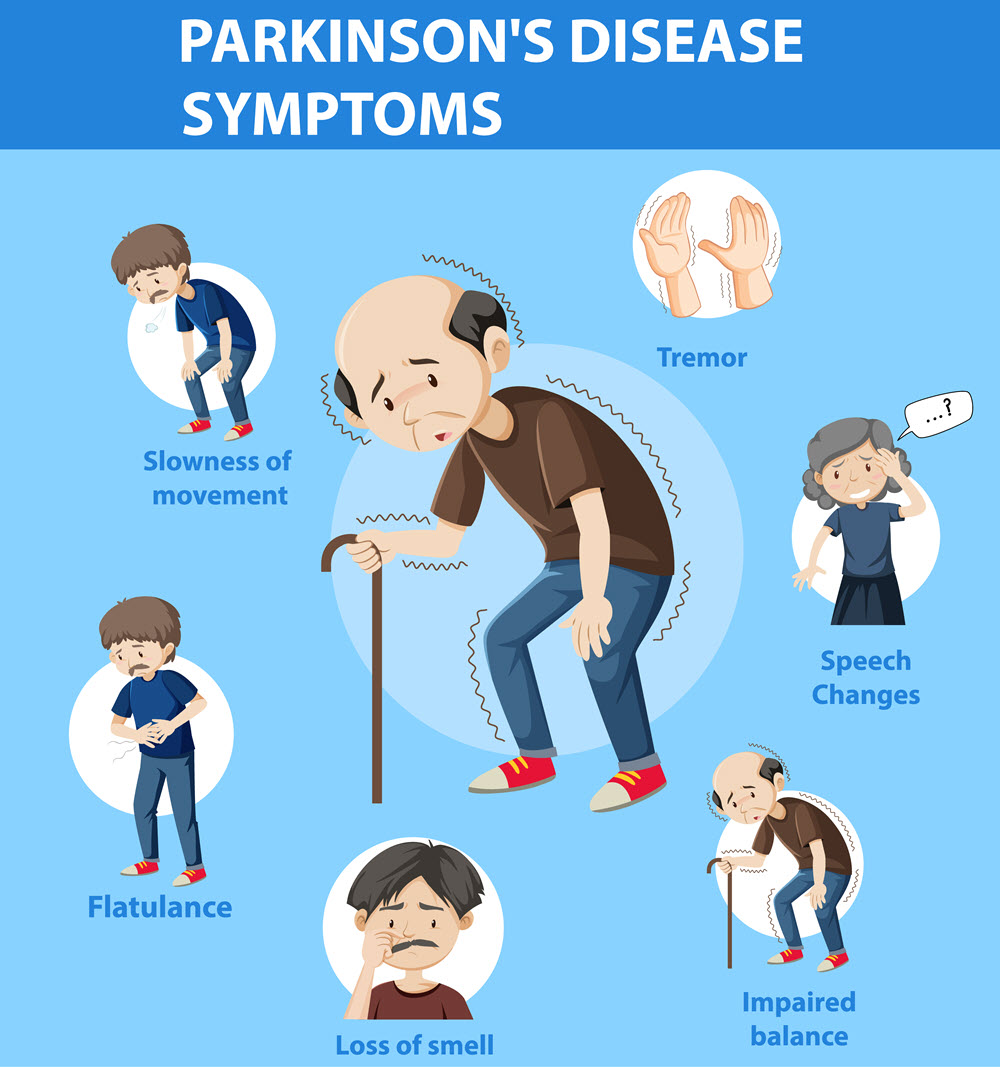Mental Health
Parkinsonism: Its Symptoms, Causes, and Treatment
By S.I. (staff writer) , published on November 10, 2020

Medicine Telehealth Health parkinsonism dyskinesia
What is Parkinsonism?
Parkinsonism is not to be confused with Parkinson’s disease. These two are different terms. Parkinsonism is a disorder with the symptoms of Parkinson's disease and some additional symptoms of brain dysfunction. In this disease, there is CNS dysfunction along with dementia and the inability to look up and down. The symptoms it takes from Parkinson’s disease are movement disorders. This is a disease of dopamine deficiency which is a neurotransmitter responsible for controlled body movements.
What are the Symptoms of Parkinsonism?
According to the University of Texas Southwestern Medical Center, the symptoms of parkinsonism start appearing between 50 to 80 years of age. The following are some symptoms of Parkinson's disease which might also be the symptoms of parkinsonism:
- Speech changes
- Stiffening of muscles
- Slow and affected movements
- Tremors
- Difficulty in showing facial expressions
Not necessarily all of the symptoms of Parkinson’s disease are present in parkinsonism. Apart from the symptoms mentioned above, the following are the other symptoms of parkinsonism:
- Difficulty in maintaining balance
- Dementia
- Rapid onset of symptoms which are also rapidly progressive
- Difficulty in controlled movements and spasms
- Inability to look up and down
What Causes it?
Parkinsonism can be due to many underlying causes including Parkinson’s disease. Common causes of parkinsonism are mentioned below:
- Medications: certain medicines are responsible for inducing the symptoms of parkinsonism. These can be reversible or irreversible depending on the drug that induced them. Quitting that medicine can reverse the symptoms of parkinsonism. However, consult a doctor before quitting because it may cause some rebound symptoms.
- Toxin exposure: exposure to certain toxic gases can induce parkinsonism. These toxins include carbon monoxide, cyanide, etc.
- Brain damage: many brain lesions, tumors, etc can induce parkinsonism.
- Repeated head injuries: repeated trauma to the head such as those sustained while boxing can be a cause of parkinsonism.
- Dementia with Lewy bodies: this condition is responsible for memory loss, changes in the level of alertness, and visual hallucinations.
- Multiple system atrophy: in this condition, urinary and bowel incontinence is common. Also, it affects coordination and autonomic function.
- Corticobasal degeneration: this condition causes dementia and affects the movements of one side of the body. It also causes an inability to carry out controlled muscle movements.
What are the Treatment Options Available for it?
Parkinson’s disease is treated with Levodopa which increases the level of dopamine in your brain. But this medicine is not so effective in parkinsonism as it is for Parkinson's disease. This is because parkinsonism is associated with low dopamine levels plus damaged cells which cannot respond to even an elevated level of dopamine. Therefore, a combination of levodopa-carbidopa might be of a little help only.
Antidepressants and botulinum can help in treating dystonias. Regular exercise aids in improving muscle movements. The rest of the treatment is symptomatic. The physicians try to treat the symptom which is the most disturbing for the patient.
References:
- https://utswmed.org/conditions-treatments/parkinsonism/
- https://www.ncbi.nlm.nih.gov/books/NBK542224/
- https://www.ncbi.nlm.nih.gov/books/NBK542224/#:~:text=Parkinsonism%20is%20characteristically%20present%20in,metabolic%20conditions%2C%20and%20toxin%20exposure.
- https://www.ncbi.nlm.nih.gov/pmc/articles/PMC4517533/
- https://www.ncbi.nlm.nih.gov/pmc/articles/PMC4234134/
Find articles related to: Medicine Telehealth Health parkinsonism dyskinesia
More articles about Mental Health
Back to the Health Tips Index




